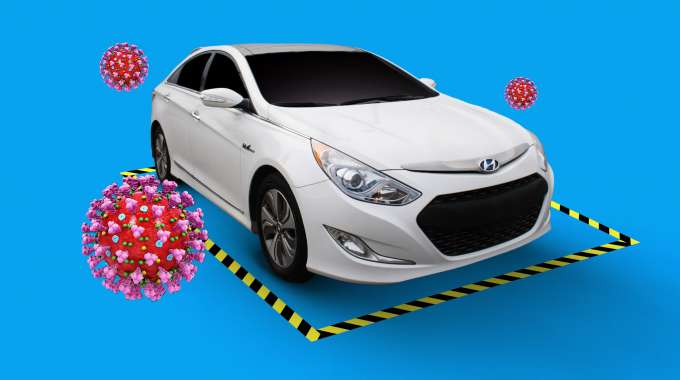
Not Driving Much During the Pandemic? It Could Be Bad for Your Car…
Is the COVID-19 pandemic keeping you stuck at home? Is your car, SUV, or truck sitting unused in your driveway, garage, or underground parking lot for days or even weeks at a time?
The good news is you’re saving lots of money on gas. The bad news? It turns out humans aren’t the only ones at risk of falling out of shape during the pandemic. While you might be saving on gas, there’s a range of maintenance issues that can develop if you let your vehicle sit unused for long stretches of time.
So, while you’re doing your best to keep your body in shape during the pandemic, here are some simple tips to keep your vehicle in shape as well.
Take your vehicle for a drive regularly
We said these tips were simple. Well, it doesn’t get much easier than throwing on your favourite podcast or 80’s playlist and simply taking a good long spin around the neighbourhood.
There are three main reasons you want to take your car out for a drive regularly: Your battery, brakes, and tires.
Let’s start with the battery—the pulse that keeps your car going. Car batteries recharge while you drive. In fact, they recharge quicker the faster you drive, so driving on the highway regularly helps keep your battery in tip-top shape.
When your car sits unused for long stretches of time and you only do short trips to the local grocery store once in a while, you actually start to reduce the battery’s capacity. This is called undercharging. For a deeper look at maintaining your car’s battery, check out our Ultimate Car Battery Guide.
Your brake discs, meanwhile, can also deteriorate and begin to corrode if left unused for too long. This includes the handbrake. In fact, if your car is parked on a level surface, you might want to avoid using the handbrake altogether.
Tires, too, are at risk when sitting idle too long. With the full weight of a stationary vehicle on them for long stretches of time, they can lose air and develop flat spots or bubbles. If you’re not driving regularly, you should do a tire safety check before you hit the road again.
Get the oil changed on time
Typically, most car manufacturers recommend you get an oil change every six months or every 8,000 to 12,000 kilometres (the exact number is different for every vehicle). The standard advice is to get your oil changed at whichever one comes first. So what if you’ve only driven 2,000km in the last six months?
It might seem counterintuitive but the less you drive the more important it is to perform oil changes on time. Why? Because oil breaks down over time. And if you’re not driving regularly, the engine isn’t reaching a high enough temperature to burn off things like excess water vapour and carbon.
Last but not least, keep it clean
It’s also a good idea to keep your vehicle clean, especially if there is (or there recently was) a lot of salt on the roads where you live. Dirt, dust, and salt—when left on your car or truck for long periods of time—can lead to permanent damage to your paint job and even rust.
Rust might seem like only a cosmetic problem but it’s not. It’s actually a safety issue as well. It can permanently weaken the structural integrity of your vehicle’s frame and dramatically increase the potential damage caused in an accident.







